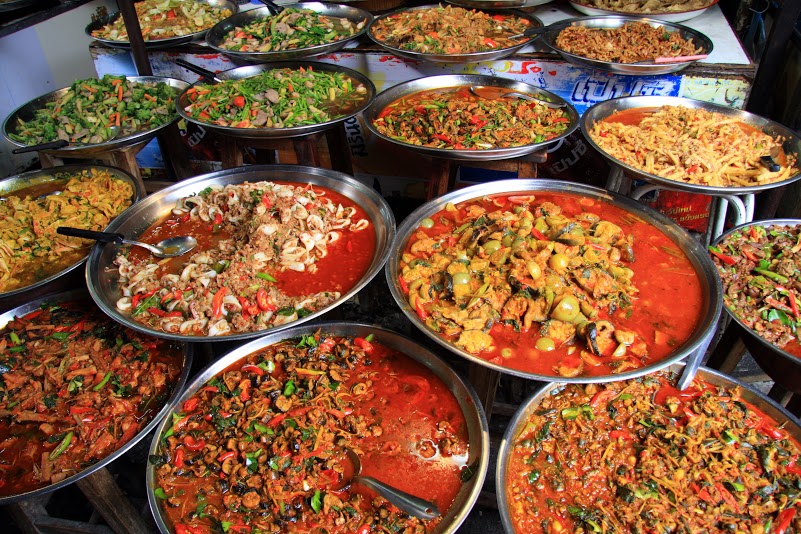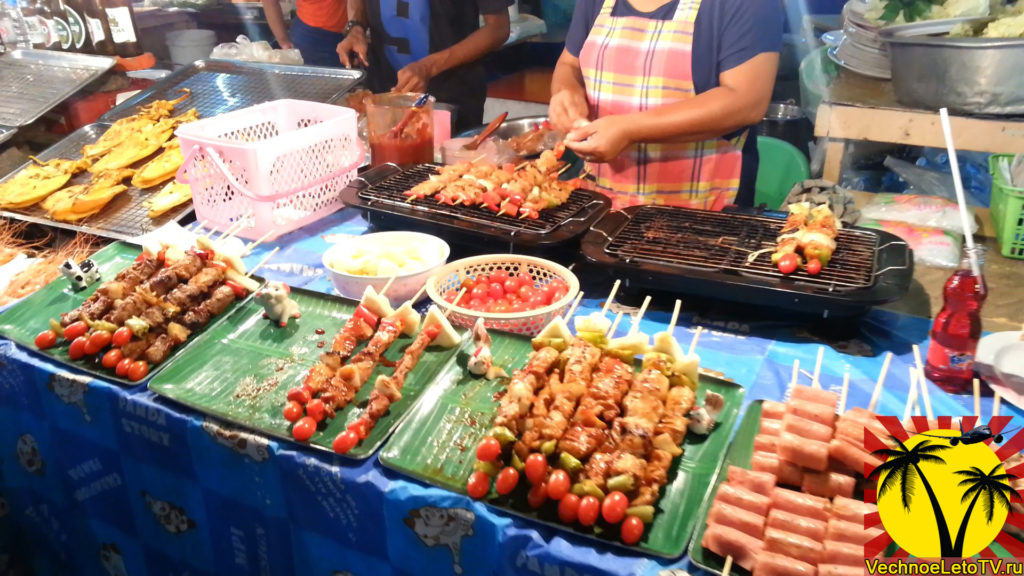
This information is provided as a general guideline if you are confronted with food poisoning. In all cases consider seeking medical attention.
Travelling in foreign locations and trying out the local dishes will always risk a bout of the dreaded food poisoning – Bali belly, Thailand tummy.
Thailand has some of the world’s tastiest food but also the potential to put you flat on your back for a few days.
Travelling around Thailand you face a double whammy of exotic new spices along with an equally exotic list of new microbes and bacteria working hard to make your day a bad one. One bit of bad luck and you’ll disrupt the delicate balance found within your digestive system.
Contaminated water? Spoiled meat? Food left out in the open for too long? Whilst the vast majority of Thai food, even the street food, is unlikely to upset your digestive system, the more adventurous your eating, the more likely you are to confront a bout of food poisoning along your journey.
It will start with stomach cramps, nausea and sweating. It will usually kick in in the first four hours after your meal, probably earlier. You’ll know it!
Projectile vomiting and diarrhea are usually the result and the next 10-12 hours of your life will be spent in close proximity to a toilet. You will feel like death-warmed-up – chills, cramps, maybe a fever and lots of sweating. But you WILL get over it.

AVIODANCE
Don’t get food poisoning! The best way to recover from food poisoning or its lesser partner, traveller’s diarrhea, is to not get it in the first place. But even the most cautious tourist can consume something they think is safe…but isn’t.
Avoiding food poisoning is everyone’s obvious aim. If it happens it’s not the end of the world but is going to put a dent in your plans for a few days. Be cautious, read up about potential problems and turn you brain on before you go ‘full commando’ on food you’ve never experienced.
No fresh leafy greens
Unless you are absolutely sure they have been copiously washed with filtered water it is best to avoid eating anything in this category. Cooked greens are usually ok, especially in boiled soups. Try to also avoid raw unpeeled fruit or vegetables.
Salads in a street restaurant somewhere off the beaten track? Probably not.
Street food

Street food, literally food you can buy on the kerbside or footpaths anywhere in Thailand, often looks and smells amazing, and is usually safe to eat. But avoid anything that looks like it’s been sitting around in the sun and humidity.
Stick with bubbling boiling soups, freshly made Pad Thai, and meat that has been grilled right in front of you.
Ice ice baby
The vast majority of restaurants and bars in tourist areas use ice that comes from frozen purified water and have it delivered daily. Off the beaten track it’s best to ask first if the ice ‘nam kang’ is made from tap water or is fresh that day. When in doubt, leave it out – enjoy your drink a bit warmer than usual 🙂
Drinking water
It’s best to observe the golden rule about drinking water in Thailand – never drink the tap water. The down-side is that most of the potable water is going to come to you in plastic water bottle which we’re all, including Thailand, trying to reduce usage. Most hotels, and some restaurants, will have drinking stations where you can top up your water safely.
Drinking water is very cheap in Thailand and is available everywhere – at least in the ‘on every corner’ convenience stores like 7-eleven and Family Mart.
All that said, we suspect that in places like Phuket, Chiang Mai, most of inner Bangkok, Pattaya and Hua Hin, the water out of the tap IS safe to drink these days. But don’t take our word for it! As a traveller, you need to err on the side of caution.
Leftovers
Maybe, but you need to refrigerate it before it gets cold and, the next day, eat it quickly before it has time to ‘warm up’. If it’s more than a day, throw it out or feed it to the dog or cat who have cast-iron stomachs compared to humans. Ditto for any other leftover you think you’d like to save for the next day.
